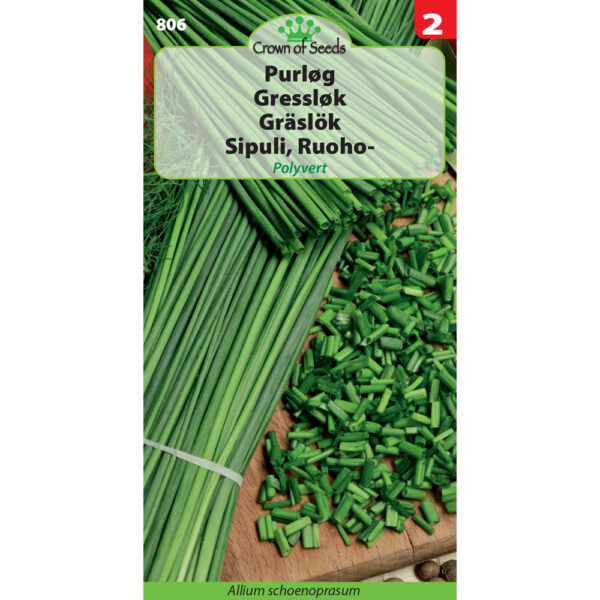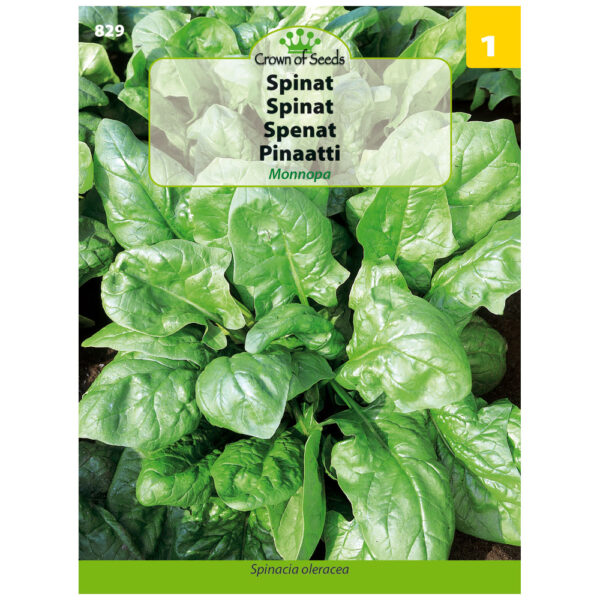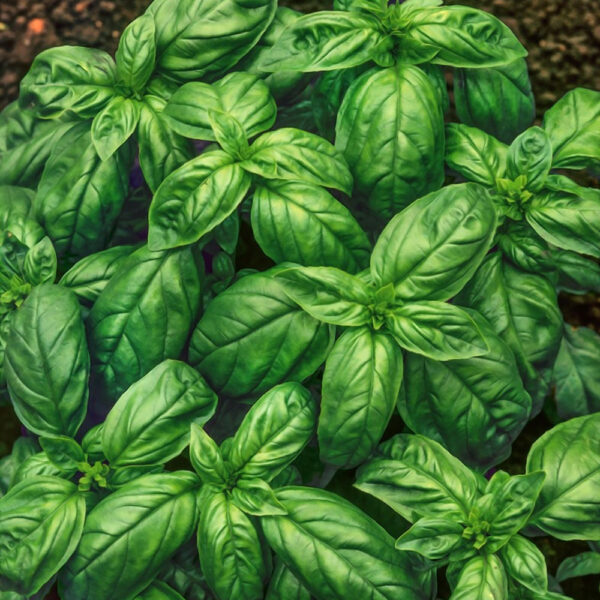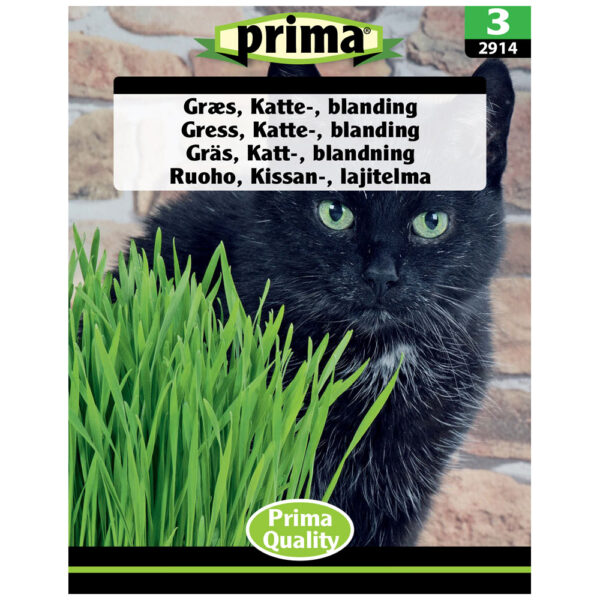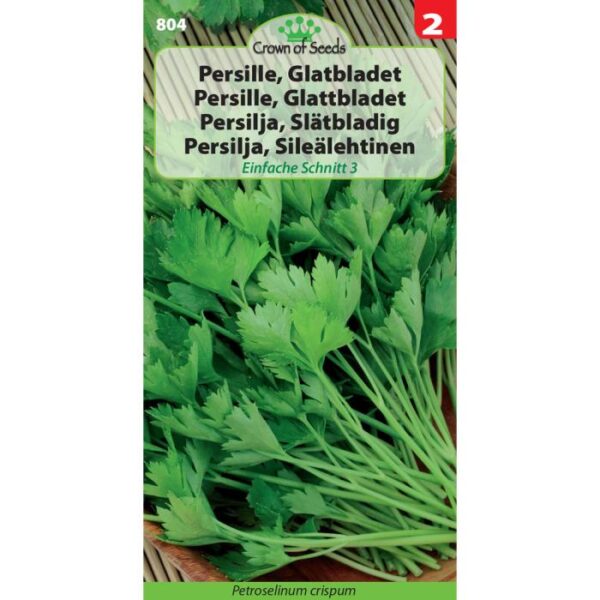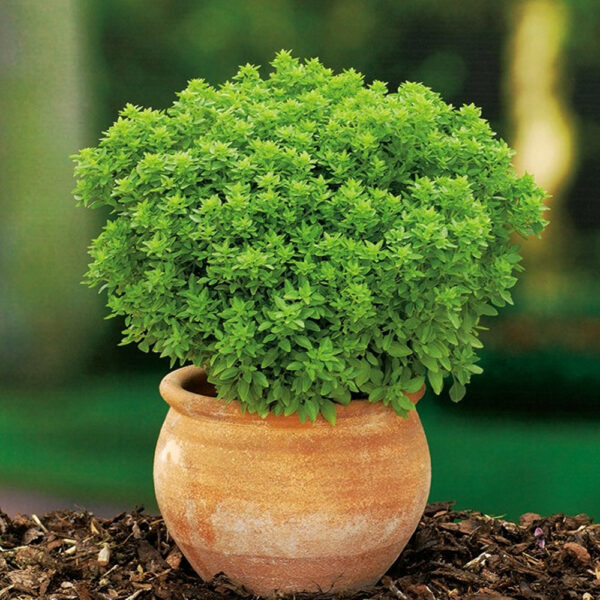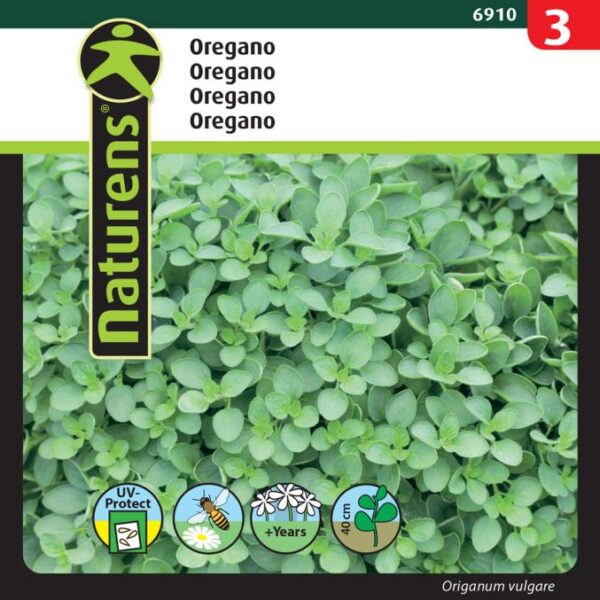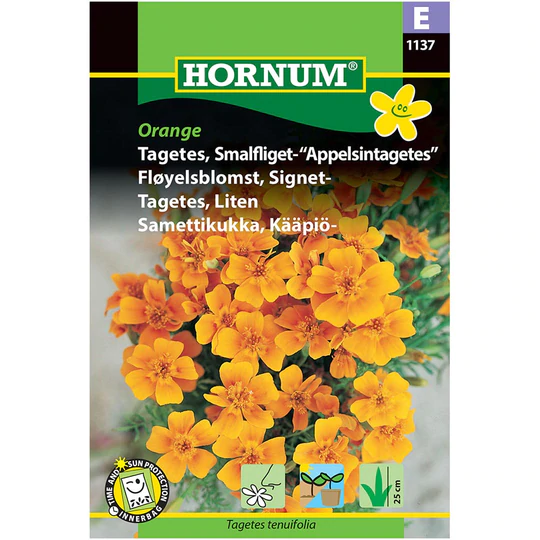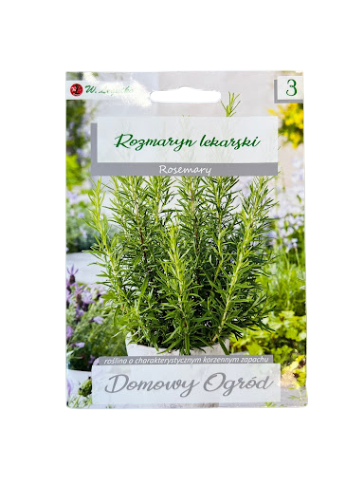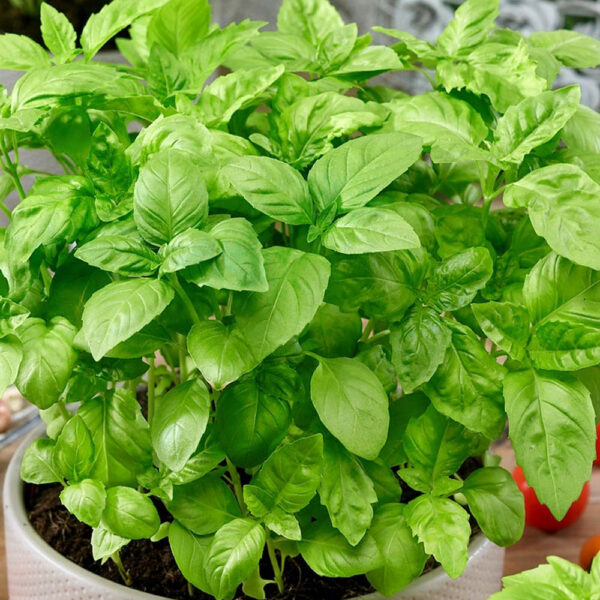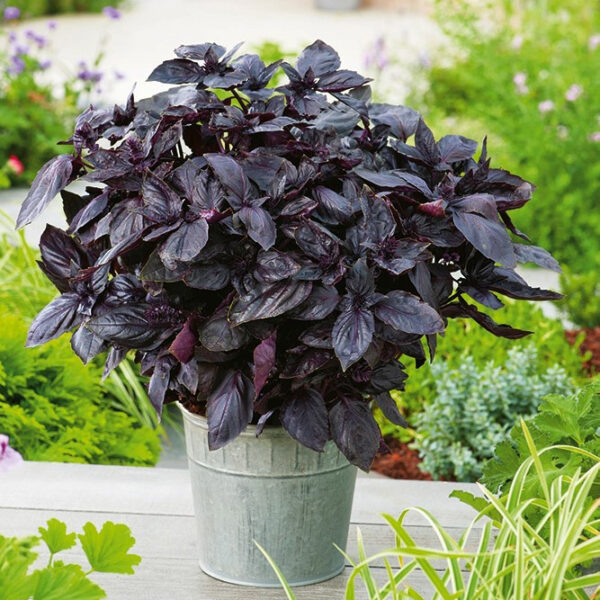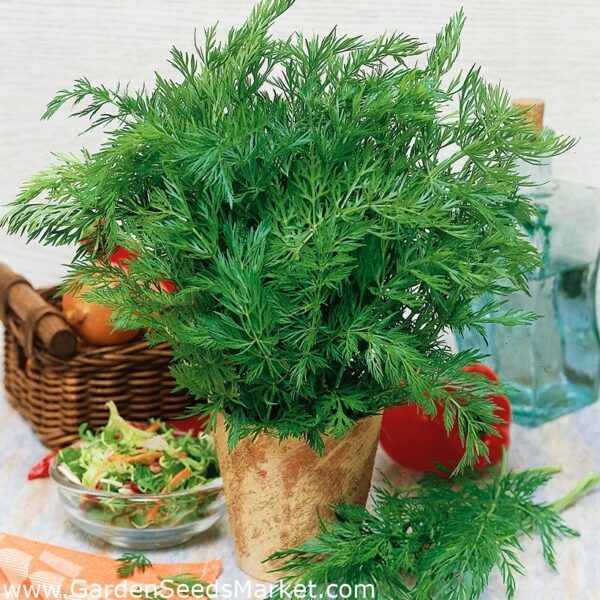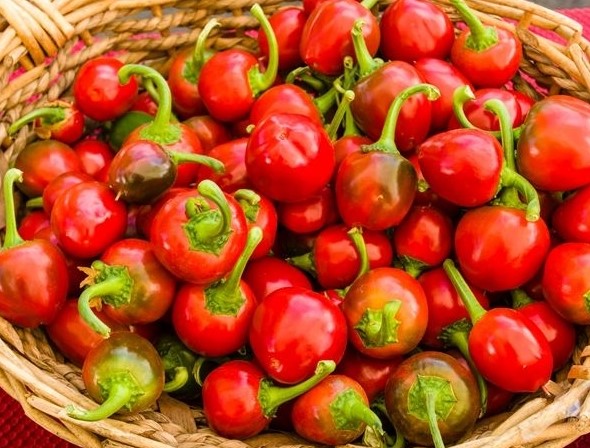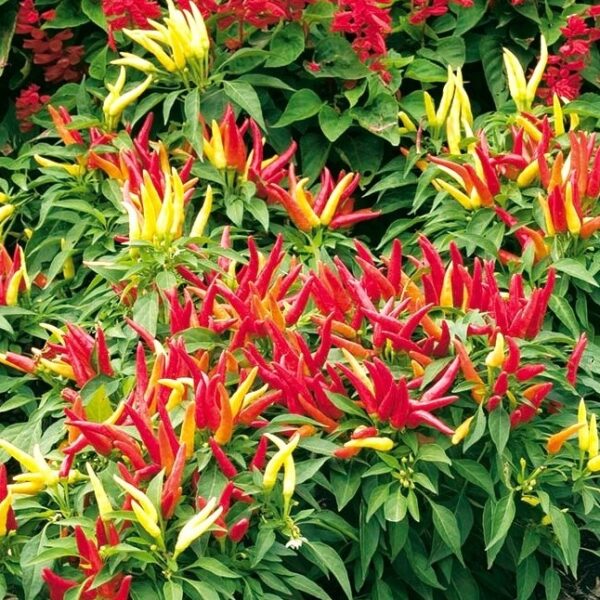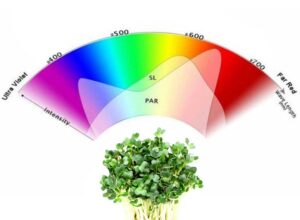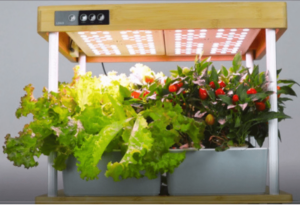This website uses cookies so that we can provide you with the best user experience possible. Cookie information is stored in your browser and performs functions such as recognising you when you return to our website and helping our team to understand which sections of the website you find most interesting and useful.
Herb & vegetable seeds
-
Green Basil seeds - perfect for the Italian kitchen
- kr. 11,95
- Add to basket
Item no.: 28020 -
Parsley, parsley seeds – Moskrul 2
- kr. 17,95
- Add to basket
Item no.: 28025 -
Chive seeds for your own herb garden
- kr. 14,95
- Add to basket
Item no.: 28026 -
Dill seeds – herb
- kr. 14,95
- Add to basket
Item no.: 28024 -
Thyme seeds – Di Roma
- kr. 19,95
- Add to basket
Item no.: 28057 -
Spinach seed, Monnopa
- kr. 11,95
- Add to basket
Item no.: 28027 -
Basil, Thai, Siam Queen
- kr. 35,00
- Add to basket
Item no.: 28023 -
Basil seed Italian Star
- kr. 28,95
- Add to basket
Item no.: 28054 -
Lettuce seeds, Mixed
- kr. 14,95
- Add to basket
Item no.: 28030 -
Basil seed Bordeaux
- kr. 29,00
- Add to basket
Item no.: 28021 -
Genovese basil seeds
- kr. 19,95
- Add to basket
Item no.: 28165 -
Cat grass, Cat mix seeds
- kr. 24,95
- Add to basket
Item no.: 28022 -
Smooth-leaved Parsley seeds
- kr. 19,95
- Add to basket
Item no.: 28085 -
Basil Seeds, Lemon – Lemon basil, Hornum
- kr. 32,00
- Add to basket
Item no.: 28053 -
Lemongrass seeds – Lemongrass plant seeds
- kr. 25,95
- Add to basket
Item no.: 28118 -
Greek Basil – Bush basil seed
- kr. 29,95
- Add to basket
Item no.: 28166 -
Oregano wild marjoram seed
- kr. 29,95
- Add to basket
Item no.: 28084 -
Tagetes narrow-lobed – Apelsintagetes | Orange
- kr. 39,95
- Add to basket
Item no.: 28056 -
Catnip – catjoy, seeds – Catnip (D) Hornum
- kr. 26,40
- Add to basket
Item no.: 28117 -
Basil, Cinnamon, Hornum
- kr. 32,95
- Add to basket
Item no.: 28055 -
Rosemary seeds - Herbs
- kr. 59,95
- Add to basket
Item no.: 28264 -
Sweet Basil - sweet basil with green leaves and seeds
- kr. 45,00
- Add to basket
Item no.: 28164 -
Basil Dark Opal seeds, purple basil seeds
- kr. 35,00
- Add to basket
Item no.: 28162 -
Caraway seeds – Carum carvi
- kr. 19,25
- Add to basket
Item no.: 28163 -
Paprika - Ontara
- kr. 59,00
- Add to basket
Item no.: 28336 -
Paprika - Poupila - Sweet Pickle Pepper
- kr. 21,50
- Add to basket
Item no.: 28337
Growing herbs from seed is the first step towards growing your own herbs, and there are a wide range of options that can bring both flavour and pleasure into your everyday life. By starting from seed, you can grow herbs like basil, thyme, rosemary and parsley that only require a little soil, water and sunlight to grow. Starting herbs from seed is not only economical, but it also allows you to experience the whole process, from germination to harvest, and makes it easy to have fresh herbs on hand throughout the year.
Benefits of Growing Your Own Herbs
Growing herbs from seed opens up a new gastronomic experience where the intense flavours can really spice up your cooking. Starting from seed allows you to choose exactly the herbs you want and gives you the freedom to experiment with different varieties and flavours. It's both fun and satisfying to follow the development of the seeds, and it strengthens your connection to nature and understanding of where your food comes from.
The seeds are easy to sow and there are plenty of guides to help you along the way. They don't require much space, so even if you only have a small corner of your garden or balcony, you can easily grow your favourite herbs. The seeds can also be grown indoors in pots as long as they get enough light. Herbs are generally easy to care for - all they need is water and sunlight, and they can often grow year after year with minimal effort. Herbs can also be beneficial in the vegetable garden, where they can help protect other plants from pests.
How to Sow Herbs
When sowing your herb seeds, it's important to choose a good, well-drained soil and place them in a place where they get enough sunlight. Most herb seeds should be sown close to the surface as they need light to germinate. Water the seeds evenly, but be careful not to overwater as this can damage them. When the plants start to grow, you can thin them out so they have room to develop properly.
Some herbs, such as parsley and dill, can be a little slower to germinate, while others like basil germinate quickly. It's a good idea to start several different seeds at the same time so you always have something green to look forward to. If you harvest regularly, many herbs will continue to produce new leaves, extending the harvest period.
Growing Herbs under Grolys
If you don't have access to enough natural light, grow lights can be a great solution for growing herbs indoors. Grolys can mimic the sun's spectrum and ensure your herbs get the amount of light they need to grow and thrive. This makes it possible to grow herbs all year round, regardless of the weather or season.
To grow herbs under grow light choose a light source that has the right light spectrum, typically Full-spectrum LED grow lightsPlace the grow light close to the plants - usually around 15-30 cm from the top of the herbs - to ensure optimal light absorption. The grow light should be switched on for approximately 12-16 hours a day to mimic a natural day length. By using grow lights, you can grow healthy and flavourful herbs directly in your kitchen, making it easy to pick fresh herbs when cooking
Use in Cooking
Fresh herbs quickly become indispensable once you have them on hand. In cooking, basil can give your pasta dishes, salads or bruschetta an extra flavour. Thyme is perfect for topping potato pizza, while rosemary can give oven-baked potatoes a fantastic flavour. Remember that fresh herbs often have a more intense flavour than dried ones, so experiment to find the right balance. Oregano is great for tomato-based dishes, while chives can bring extra freshness to egg dishes and dressings.
Using Herbs for Drinks
Herbs can also be used in drinks to give them a fresh and aromatic flavour. Mint is a classic in Mojitos, while lemon balm can add a refreshing flavour to both water and cocktails. Consider planting basil or lavender for use in drinks as they can add exciting flavour combinations. A Gin & Tonic, for example, can be revitalised with a sprig of rosemary or some basil for a unique and refreshing experience.
Avoid food waste with your own herbs
Growing herbs from seed is also a great way to avoid food waste. Instead of buying large bundles at the supermarket, you can pick just what you need directly from your garden or windowsill. That way, you get exactly the amount you need and the rest can be left to grow. If you get more herbs than you can use, you can easily dry them to preserve the flavour of summer and use them all year round. You can also freeze them in ice cube trays with a little water or oil, making it easy to add flavour to your dishes later.
Getting Started with Growing Herbs
Are you ready to start growing your own herbs? It all starts with herb seeds, and it doesn't take much - just a free corner and some time. Starting herbs from seed is both simple and rewarding, and it can quickly develop into a hobby where you experiment with different types of herbs and plants. Experiment and find out how different herbs can add new flavours to your dishes. Maybe you'll discover new favourite combinations, or maybe you'll be inspired to try growing other types of plants. Your imagination is the only limit to what you can create in your garden, and soon you'll be enjoying the fruits of your labour - both in the form of tasty dishes and the joy of having grown something yourself.




